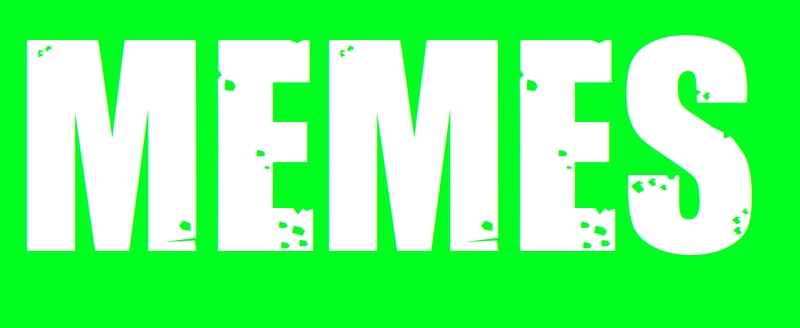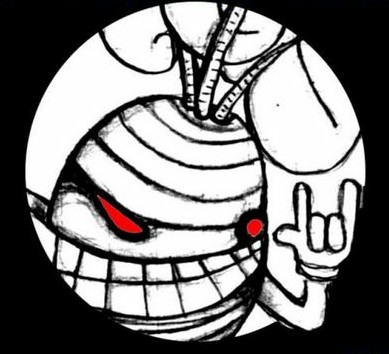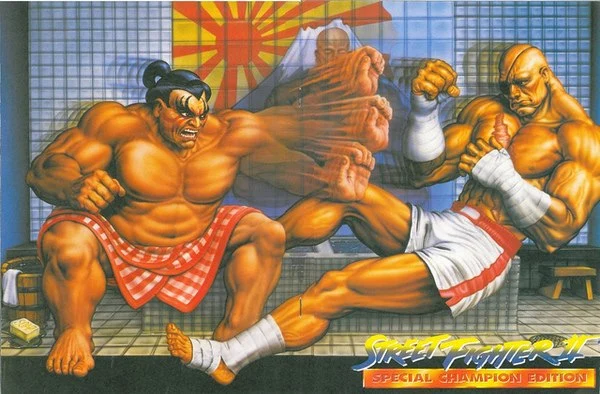Trick question, washing machines come in many different genders:

I thought pans came in many different genders
Bi only in two.
Only the first two are genders. The others are psychological illnesses
Edit: /s
found the transphobe
Sorry if my intent wasn’t clear but I wanted to make fun of the transphobic meme
I don’t think that saying there are more than two genders is transphobic… saying the others are psychological illnesses, however…
I was making fun of the concept that there are only 2 genders by applying it to the washing information but I see that this wasn’t obvious
Die Waschmaschine die
Die Bart die
No one who speaks German could be an evil man.
Gut ausgedrückt.
Ich kenne die Szene, danke.
deleted by creator
Das ist die Kleidung der Waschmaschine
Ich stehe auf der Waschmaschine
German grammar cannot be trusted
Waschmaschine:*
If you get the wrong one just accuse the examiner of being transphobic.
please no baiting trans folk
deleted by creator
Wow, you must be a joy to spend time with. 🙄
Man… This post going over lots of heads.
deleted by creator
Don’t bite the bait pls, reporting in this case is best course of action. Thanks
Sorry you’re being downvoted, I think you’re entirely correct. I hope the other people just don’t realize how jokes that are relativising transphobic experiences like that are downplaying the actual issues trans people are facing.
I wish we would live in a world where we could just crack jokes involving trans people like we do with everything else.
itl be definitely be nice when lgbtq doesn’t need to be a social movement, or a political opinion, just a normal thing in life.
We can, but we have to work for it. When any group is no longer being systemically discriminated and have equal rights, then they’re also valid comedy targets.
Like with racist jokes. They’re fine in very confined groups where everyone agrees that the absurdity of the premise is part of the joke and where nobody will be made to feel unsafe by it. But to a wider audience where people might misunderstand where the joke came from, in what spirit it was told in, it’s nok OK. Not only can it make people from the group being targeted feel unsafe, but it’ll also embolden actual racists who’ll mistake the joke as support of their beliefs.
It’s a trust thing I guess. As soon as trans people can see someone crack a joke about them online and rest assured in the fact that the person telling that joke isn’t voting for or otherwise enabling people who wants to take away their rights or straight up hurt them, then it’ll be fine.
This protection, however, should not apply to people who make it their business to hurt or oppress other people, which is why it’s always open season on nazis.
My thoughts exactly.
But nobody is downplaying it? Yes Trans people face a lot of issues and they really need to be supported in many ways, but I don’t think this joke insinuates any of that.
I do think that comparing a non native speaker using the wrong article with trans people having to fear for their lives sometimes is downplaying it. I don’t think that was the intent with the original comment, which is why I also don’t appreciate the other person’s snappy response. But I do believe those kinds of jokes can subconsciously make people believe things aren’t as bad as they actually are.
Removed by mod
First of all, pretty much anything is political.
Second, I’m not the one to pull transphobia into the context. The joke did that on its own.
Third, I’m looking to have a civil discussion, you’re the one exaggerating things and starting drama by throwing profanities around and accusing me of virtue signalling.
Oh grow the fuck up would you and quit the offended on behalf of others shtick.
OPs post was not transphobic in the slightest. You’re just a shit head trying to manufacture drama.
You are not looking for civil discussion so don’t try and sell me that pile of horseshit either. You are trying to create drama and are acting like a cliche virtual signalling douchebag.
deleted by creator
deleted by creator
that would be true in a world without bigotry.
This is my go to response when people are trying to claim that English is hard… Well at least I don’t have to remember what gender has randomly been assigned to every noun I want to use.
No, instead you have to learn to read and spell in a system that often sounds quite different to what is written. I want to read a book that’s never been read. I want to live a life alive at a live show. Anything ending in ~ough which has something like 6 or 8 different sounds. I’m a native speaker trying to work with my wife on English (we speak Japanese at home). It’s insane for any reading/spelling.
Are you through laughing at the English kneading dough in a trough, though?
As soon as I stop hiccoughing and cut this bough
*needing to laugh
Oh yeah, unlike French where 2/3 of each word is silent.
I think liason is the harder part about trying to transcribe someone’s spoken words as a new learner without a good grasp on vocabulary.
At least with French, a lot of those silent letters are a lot more predictable than English. English has French borrowings (from two different time periods), Latin borrowings (some of which were borrowed via Norman or Old French first), Greek, Germanic, etc. and we did various levels of preserving the native spelling. This is neat for etymology and maybe figuring out a word one doesn’t know, but kinda sucks for spelling. A lot of words from Normal and Old French are now spelled differently in modern Parisian, but the more recent loans are closer. It’s a hot mess.
liason
Liaison, but also did you mean to use that word there or was it a weird autocorrect?
And then you also have to get the correct stress on the syllables which are also unguessable. Ask for a banana instead of a banaaaaaaaana and people won’t understand.
That’s the only hard thing about English. Many other languages have this difficulty plus many more (gender, tenses, complex rules, exceptions…).
English has no shortage of exceptions to “rules” (sometimes the rule only seeming such because it applies to the subset most frequently used rather than the whole set of whatevers). English’s most common verbs are irregular. That’s not necessarily too crazy (be, have, do/make are often weird in most languages because they resist change the most since they are most used). We have all kinds of things that aren’t “correct” (prescriptive view) that native speakers get wrong all the time. “I have went” rather than “I have gone” is one that grates to me, but I accept that language changes. A lot of verbs are also losing their endings and patterns and gradually going to the dominant ~ed ending where previously they did not (Tom Scott has a good video on this).
English word order is also pretty weird.
“The man gave a bone to the dog”, “The dog was given a bone by the man”, “The bone was given by the man to the dog”, etc etc
These are all valid sentences* expressing the same thing.
*They may not be gramatically correct, I am not a grammar professional
edit: I had forgotten that you can also do that in other languages
I don’t think that’s very specific to English, I could write the same subject swap in French, Spanish and maybe Japanese.
Yeah, we can do it in Japanese. Particles change. Passive voice and subjunctive mood can also be done without too much trouble.
If you task your male dogsitter to give your dog a treat while you are away and somebody asks you whether your pet is taken care of during your vacation, you can say: “Don’t worry. When I return, the bone will have been given by the man to the dog.”
It’s not like you can’t say that in french.
They have almost a hundred ways to conjugate each verb too (even if there are about a hundred groups).
English is a walk in the park compared to French IMO.
Then by that metric, Chinese must be incredibly easy. Simple genders, no articles, simple grammar, no verb conjugation whatsoever, very simple tenses. Probably the easiest language out there!
I didn’t list all possible difficulties. Chinese have this never ending list of very complex characters and probably more subtility that I don’t know of. If it is close to Japanese though, yes the grammar doesn’t seem complicated compared to European languages.
Chinese grammar seems to me to be simpler than Japanese, though I studied Japanese for about a year and have lived here speaking the language daily (primary language at home) for the better part of a decade and have only scratched the surface on Mandarin.
Plus every word has like 10 different meanings while other languages sometimes have 10 different words for the same thing.
runis my personal favorite. Run for office, run off a copy, run out of something, run into something, run over something, etc.I don’t necessarily think this is uncommon in language (particularly with the most common ~20 or so verbs).
I rarely hear people saying English is hard, except for the pronunciation.
German has this too.
And then, when you’re learning French, you have to watch out for words that have a different gender than in German.
la lune - der Mond
le soleil - die Sonne
Yep, that’s how I know. The struggle was real for 3 years.
Removed by mod
Nope. You just grow confident to not notice the blunders, and learn to recover fast enough to not persist when it would be detrimental.
Native speakers making mistakes or not caring to stick to the rules is one of the forces behind languages’ evolution.
deleted by creator
I’m semi-fluent in German and Spanish, and my strategy is guesstimate. I figure that I’ve probably read/heard the word before, so I just test out the genders on it and whichever one “feels more natural” or “sounds less weird”, it’s probably because I’ve heard it that way before, so I go with that.
Oh no it doesn’t!
In Swedish you can figure out the gender of a new word because the phrase hints at what it is. In french there is no such luxury, and even worse, it’s a Bel (sounds like belle which is feminine) avion not a beau(masc.) avion even if avion is masculine…
Lots of french people don’t know the gender of the ocean and other voyel starting words because of that.
Have you tried asking the washing machine for its preferred pronouns?
mate, can you please not bait trans folk? thanks
Removed by mod
How aggregious is misgendering items in other languages? I assume it’s no big deal and may not even be worth correcting most of the time?
It sounds very weird and you know immediately it’s a foreigner speaking. When you are fluent the genders just come naturally, I don’t think I’ve ever seen a native making a mistake like that, maybe children.
I wouldn’t correct anyone unless they want to learn though, the noun itself is more important and it carries the meaning across.
This is for Brazilian Portuguese at least.
I can vouch it’s the same for Mexican Spanish.
It’s jarring but obviously completely acceptable from someone learning the language
Yeah, it just sounds off and someone might correct you but it isn’t a big deal.
In spoken language? As other said, you notice and ypu know you don’t talk to native speaker. You might correct them just ao they can learn and carry on.
On exam, which is the contextnof the meme? Pretty aggregious.
Every once in a while there are two words that are written the same but have different gender, if you use the wrong article it’ll get confusing for a second and you’ll have to figure out from context what was actually meant.
If you misgender something you either:
-
Are a native speaker that messed up (but know the correct gender), so either you correct yourself or just continue, since everyone will understand that you messed up and will understand you perfectly.
-
Are learning the language: if the other person is close to you, you’ll be correct to help you learn the language. Else, the other person will notice that you’re not a native speaker and will switch the gender in their head to not discourage you. Unless the other person is an asshole.
There are very few situations where the hearer can’t just correct the gender in their head, so it’s not very serious. I’m talking about Spanish though, idk if in other languages is different.
-
It would look or sound really stupid and be absolutely incorrect if you have done it in Polish. There is high chance you would be mocked for it.
Removed by mod
French is just kind of compact (they even have the ‘de’ to un-ambigous things I figure) so sometimes the phrase rolls on but means something completely different, it might work out or not but can be confusing.
My master mistake, at dinner with my SOs family;
Tout le monde veut rentrer dans le moule.
This is the correct version.
Edit: BTW Swedish is the other way around and it’s quite easy to understand even if you missgender.
That’s the most frustrating part about Danish/English. Does saying the wrong article break communication? no, most people won’t notice unless you really linger on it or point it out (you probably wouldn’t hear it half the time in Danish anyways). Does it look fucking stupid and wrong when you write it? yes 🙃
Danish is a gigachad language because they use the incredibly satisfying /ð/ as in ved. I don’t even know exactly what that thing is it’s some kind of an abomination of a velarized laminal approximant and absolutely impossible for any non-native to pronounce.
the soft d? It’s not hard imo, as a non-native. I understand language is mostly muscle memory/training but really it’s just learning how to use the … back? of your throat and tongue to make the right sounds with danish. Most of it requires your tongue to be flat or throat open to some degree.
This all sounds very sexual but I do truly mean it LOL
That must’ve generated some thunderous laughter :D
deleted by creator
Female in Russian, because the word machine/машина ends with A, and so any machine, from tattoo gun to steam engine is female gendered. I always thought French and German worked in somewhat similar manner?
It works like that in French until you use a different word for the machine.
“Mon ordinateur est une bonne machine”. In a single sentence my computer was described with words both male and female.
It’s just vocabulary and grammar, not the deep essence or identity of things or people.
it is in German too.
It is die Waschmaschine. and a Steam Engine ist die Dampfmaschine. And it is a very straight foreard naming convention. Just add what kind of machine it is to the front of the noun.
I didn’t learn of any rhyme or reason to it in German when I took classes on it. In fact, in a few cases, the gender changes the meaning of the word. Der See und die See, for example. One means lake and the other means sea/ocean.
There’s more shenanigans with “umfahren” and “umfahren”, where Intonation matters. One means “drive around”, the other “run over”.
Also one is a strong and one is a weak verb, meaning that in certain cases, one will be split apart:
Ich umfahre jemanden: I drive around someone.
Ich fahre jemanden um: I run someone over.
That’s a rather rare occurence. Most often, only the grammar will be incorrect if you use the wrong article.
OMG, I’ve been doing my Duolingo lessons and never realised that they had different meanings, I just thought Germans used one word for all bodies of water 😭
“Die See” denotes an ocean, “der See” denotes a lake. You will more often hear “das Meer” instead of “die See” tho.
i don’t recall there being any rhyme or reason to gender in german, but it’s been many years since i studied. i do remember that the gender of any word like ____-machine would be whatever the gender is for machine.
Native German speaker here, can confirm yes, there are some patterns but mostly the genders are pretty random; but a Waschmaschine is feminine because a Maschine is feminine, yes
thank you for confirmation!
There’s some tendencies, but a ton of exceptions. I wouldn’t call It strict rules.
The only actual rule I’m aware of is diminutives (i.e. words ending in -chen or -lein) always being neuter (das). This is also the reason why it’s das Mädchen (girl) and das Fräulein.
The rest is arbitrary, and sometimes there’s even regional variations.
Also a neverending discussion around some “newer” words or brands such as Ketchup, Nutella, etc.
deleted by creator
The general rule of thumb in French is the word is feminine if it ends with “-le” like “la table”, the table is feminine with it the article “la” to denote feminine. But this is not always the case. For example, house in French is “la maison” which doesn’t end in “-le”.
As a french I never heard about this, and I can think of way more words contradicting it than confirming it. I wouldn’t use it.
In Italian there is il tavolo, male, and la tavola, female. The latter can also be used to refer to a sheet of, usually, wood.
I am sorta learning French on Duolingo (and took 2 years in high school).
Articles like this one are really helpful, but also show the difficulty in learning the gender of nouns: How to easily guess the gender of French nouns with 80% accuracy
This one is funny actually! You can say une machine à laver, or un lave linge. :D
Never in my life did I hear the term lave linge
Really? I’ve seen it at least twice in the last minute.
Me too, but I never heard it.
It’s probably makes sense once explained properly but as an outsider to gendered languages in general it feels like the stupidest archaic idea ever lol.
Grammatical gender has nothing to do with sexual gender. It is simply the expression on how words are declined in different cases.
I’m not arguing there is good reason and thoughtful context haha, I’m certain of that. Just makes learning a mess if you’ve not encountered it beforehand lol.
As an insider to gendered language it feels like the stupidest idea ever to make non-gendered language gendered and call it inclusion or whatever they call it.
I don’t know what we’re talking about anymore
This is just a guess since the above comment appears to come out of nowhere and doesn’t explain further.
In gendered languages, there are often gender-neutral words, but some people say that it is sexist and demand a female form for that word, making it gendered.
For example in Spanish, “médico” (medical doctor) used to be the only word for both men and women, but since it looks like a masculine word (because it ends in “o”) people complained about it and made “médica” for women. So before we had “El/la médico” and now we have “El médico” and “la médica”.
In my opinion this is such a double standard because it is only done with words that appear masculine. For example “pianista” (player of piano) is feminine looking but gender neutral (so you can say “El/la pianista”).
Removed by mod
English is a clusterfuck no doubt about it. I don’t know if losing the gendered portion over time was such a bad thing though. Might’ve made it more accessible in some ways and that helps a language survive I think. But I’m not a linguist and there’s a million other factors too.
As a speaker of a couple of gendered languages, it absolutely is.
reject natural language, return to toki pona
End-syllables help a long way:
For example the often cited neutral: girl/Mädchen is a diminutive. So everything with -chen or -lein becomes neutral and therefore: das.
(Brötchen, Männlein, Häuschen, Fräulein)
https://mein-deutschbuch.de/genusbestimmung.html#nachsilben
As a bonus: in plural everything is “die” so just formulate everything in plural and you are always right.
The problem though is when you get into figuring out if it is in the nominative, accusative, dative, or genitive case.
Der Hund can easily be turned into den Hund, dem Hund, or des Hundes if you aren’t careful.
And for the love of God, don’t ask me anything about subjunctive case 😮💨
Une machine, putain !
Noticed that space after putain ? When the sign has two things, like an exclamation mark or a colon, you put the space in between. Otherwise not !
Sorry for the the frenchification by using the “espace insécable” in the English text.
Does ‘÷’ require 3 spaces?
Except for ; because it’s no fun if there’s not at least one exception.
Removed by mod
Are you sure about that? Seems all signs with a dot plus another thingy are concerned:
They should be non binary, like in the US.
Doesn’t French have ‘la’ and ‘le’ as well?
Yes, that’s the point. You need to memorize which words go with la and which with le. Or der/die/das for German. Or no articles for Slavic languages but the declination and other words in the sentence (selection of pronouns, forms of adjectives and sometimes verbs) depend on the gender.
It’s machina lavatoria in latin and obviously femal for your grammar.
This easy trick to learn French, learn Latin first :-) !
Thanks, it flew miles over my head.
If I remember correctly from my German class in highschool, the rule of thumb was if it’s an inanimate object use the feminine Die. That was in the mid 90s and I haven’t spoken German since, so that with a grain of salt.
genders of words don’t usually change over time, even if spelling does.
also who told you that rule of thumb? being german, I don’t think it’s accurate at all.
The more accurate rules of thumb are based on word endings. -e or -in suggest it’s feminine, -er or -or that it’s masculine, and -chen or -ling that it’s neutral. Such hints only work for about 30 % of words but some are close to 100% accurate.
Wrong
How do gendered languages handle neologisms?
(this is a very difficult question to search btw)
At least for romance languages, there is a rhyme and reason for the gender each noun gets, so neologisms and borrowed words tend to follow the same logic.
For word morphology, as an example, in Portuguese nouns ending in a are almost always female, so new words that end with a are very likely to be female.
There are semantic rules too, for example brands and companies are typically (I want to say always but there’s probably edge cases) female, so even though Netflix and Amazon didn’t exist before they’re still female.
deleted by creator
there is a rhyme and reason for the gender each noun gets
There is? I only took high school level French, so I’m very ignorant on the topic and happy to admit so, but any time I asked that about that very idea all I ever got in response was “that’s just how it is!”, so I would love to learn if you’re willing to elaborate.
And I don’t think “it ends in A” is solid enough foundation to call it “rhyme and reason”
I speak French and it probably doesn’t help but it just sounds wrong when misgendered except for words that begin with a vowel syllable for some reason. Even we, struggle with those. E.g. avion, hélicoptère, école. We also use the l’ for those words instead of le/la but it becomes harder when we’re have to choose un/une. Maybe that’s a hint to what’s happening. Any language expert can chime in?
Yes, there is a rhyme and reason, but because that requires actually delving into linguistics studying (plus etymology for all those edge cases that got carried over from Latin and other languages), most people don’t get too deep into it apart from shallow rules (eg: if word starts/ends in X then it’s male/female).
Not even natives of gendered languages usually bother learning the nitty gritty rules, they just pick it up as they go, that’s how all of us learn our languages.
On a practical level, it’s also much easier to teach a 6 year old in elementary that something is male/female just because, and to remember that, than to go into each and every individual case (morphology, syntax, semantics, etc.), which themselves typically have edge cases due to history and whatnot. Especially because that child will naturally pick it up as they absorb the language around them so it really doesn’t matter much.
And then there’s just those cases where we actually don’t know because the etymology got lost. Yeah, that’s fun.
In school I was never taught why something is male/female yet I can always distinguish them naturally in my. day to day because that’s how I’ve always lived. That’s just one of the amazing things of human language.
If you ask a native of a gendered language why they think X word should be male instead of female they’ll probably just tell you it sounds wrong otherwise, and that’s literally the end of it for most of us. We don’t think about it, we just intuitively know it sounds right or wrong. I’m sure that’s frustrating to hear for a foreigner trying to learn, but you can’t teach what you don’t know. In the end, other than very broad rules, the best way typically is to just start memorizing it one by one.
Also, “ends in A” is definitely rhyme or reason in Portuguese, that’s actually a rule. Although to be more specific it’s a tonic A, but even that has an exception if it’s a nasal Ã, but I didn’t want to get into phonology too, I just wanted to give a simple example.
In slav languages, you just go with how the neologism sounds. “Computer” ends in hard r, so it’s masculine, for example.
Every once in a while there’s going to be shit like with “coffee” though. It sounds neutral-gendered and is officially neutral-gendered, but there’s been a big period when people believed it should be masculine because of the source language or some shit. Still a lot of people arguing about it.
deleted by creator
Native German speaker here but I also speak Spanish, Portuguese, French and Swedish. Each of these languages handles them differently so I am thinking there’s not a general answer here.
It also can depend within each language on some context. For example in German many neologisms are automatically neuter (das) unless they happen to resemble some common pattern. For example a lot of German words that end with an -e are feminine and sometimes that is applied to neologisms too.
Sometimes it changes. For example, Covid in French, everyone was using “le covid” (i guess cos it’s a virus, and virus is a masculin word), but then I believe the French academy weighed in that it should be “la covid” because it’s not the virus but the disease (la maladie) we’re talking about. Anyway. Yeah other than the official sources, many of us peasants all still say Le covid because by the time they weighed in we were all saying Le and so now saying La sounds weird.
Washing machines have genders?
Yes, female in german, idc about french but i suspect it’s the same.
Is it stupid we’ve done this for all nouns? Yes.
Do I judge you subconsciously if you use it wrong? Also unfortunately yes.
In French, we have different synonyms for that :
- “machine à laver”, which is female
- “lave-linge”, which is male
- “laveuse” (Québec only), which is female
Why do they have different gender for the same thing ? Because, insert your favorite expletive word, that’s why !
Romance languages be fun like that lol
Tabernac!
To mess with foreigner is my take (as I’m one).
Machines tend to be female, because the word machine itself is feminine
Der Mixer
Makes sense. Both require regular maintenance or they’ll start acting up.
If you’re going to be misogynist, maybe you could at least throw stones from a house that isn’t made of glass. Since, you know, women have for a long time been the ones responsible for cooking your food, washing your clothes, cleaning your house, and for the first few years of your life, wiping your ass.
Meanwhile, men have for a long time been the ones responsible for putting food on the table, paying the rent, building houses, cars, etc. and maintaining them, going to war to defend the country, mowing the lawn, and keeping society running.
Also, hilarious of you to accuse me of misogyny and then basically saying “women are responsible for doing traditionally female jobs”. LOL.
LMAO, even.
Men banned women from doing all those things.
Perhaps in the past, but nowadays women are totally free to become soldiers, farmers, butchers, construction workers, electricians, bus drivers, or garbage collectors. Yet all of those jobs are still overwhelmingly done by men. And if men didn’t do them, there would be no houses, no roads, no electricity, and no food.
Where do you think new washing machines come from? The sturgeon brings them? Don’t be ridiculous! They are far too heavy!
I thought they came from pet hair clumping up in another washing machine.
Also in German, there’s a neutral gender which applies to diminutive nouns ending in -chen, which means that men are male (Der Mann), women are female (Die Frau), boys are male (Der Junge) and girls are neutral (Das Mädchen). Which is fun to learn for the first time lol.




























